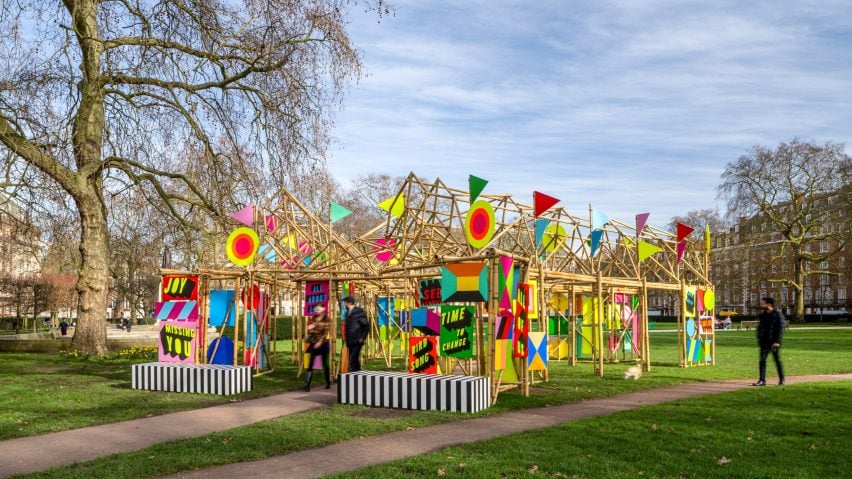
Morag Myerscough designs bamboo pavilion to bring "unexpected joy" to passersby
Colourful geometric panels and positive messages brighten the bamboo structure of the See Through pavilion, which designer and artist Morag Myerscough has installed in a park in London.
The pavilion, which straddles a path through Grosvenor Square, was created to uplift passersby and offer safe outdoor space for people to enjoy during the Covid-19 pandemic.
Myerscough's design responds to the impact of lockdown on the public and the resultant increase in people spending time outside and in nature.
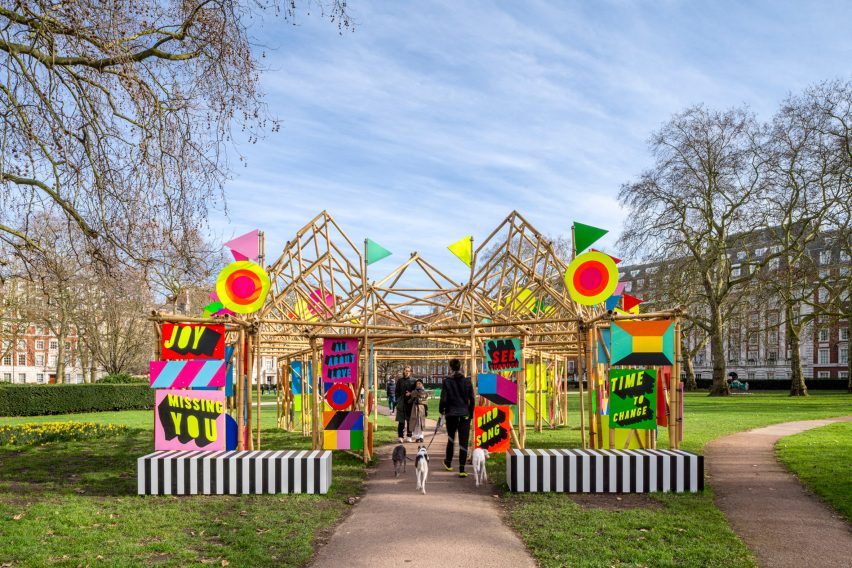
"Our worlds have closed in and we have time to reflect and be engaged in our lives in very different ways," London-based Myerscough explained.
"We have had time to appreciate the here and now, connect back to nature, and take a slower pace," she continued. "Outside spaces are safer places to be and so we need to occupy them and bring unexpected joy back to the everyday. The structure is a response to these new times."
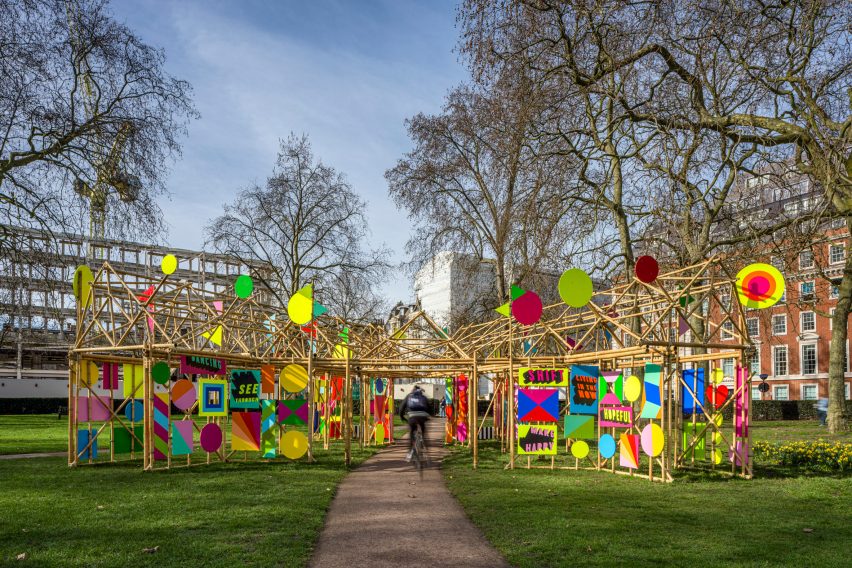
See Through is one of 11 pavilions built by artists as part of Wander Art, an outdoor art trail in London curated by Alter-Projects and hosted by Grosvenor Britain and Ireland.
Each artist was given a selection of sites to choose from, with Grosvenor Square being Myerscough's first choice due to its size, openness and natural surroundings.
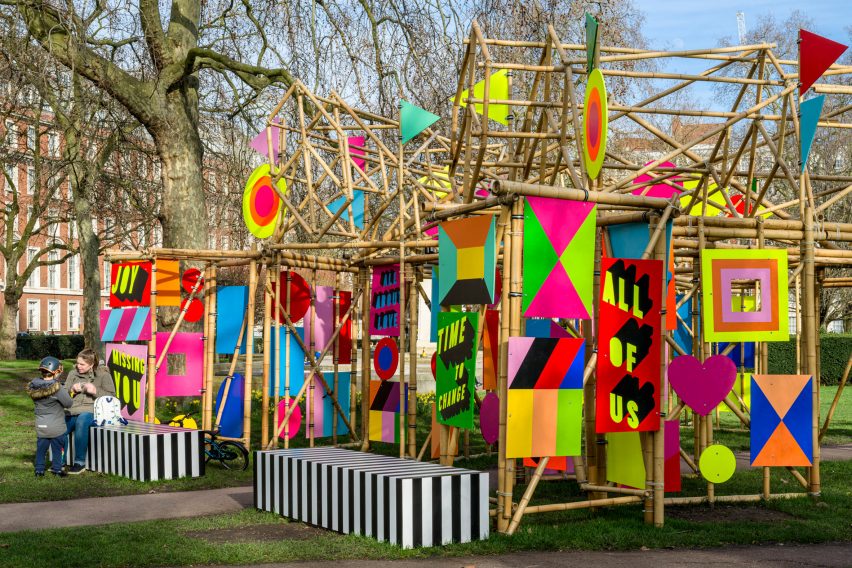
The pavilion's size is dictated by site constraints: its height of four metres satisfies planning guidelines, while its width accommodates the path over which it is built.
Its open form was designed by Myerscough to offer a playful, skeletal appearance, while also minimising enclosed space for visitors' safety.
"The piece was commissioned in the midst of the pandemic so it was important it was not an enclosed space, as much air circulation as possible," Myerscough told Dezeen.
"There are many ways to enter and walk through the artwork, which was important so that people can keep their distance, but at the same time allowing several people to enter at one time."
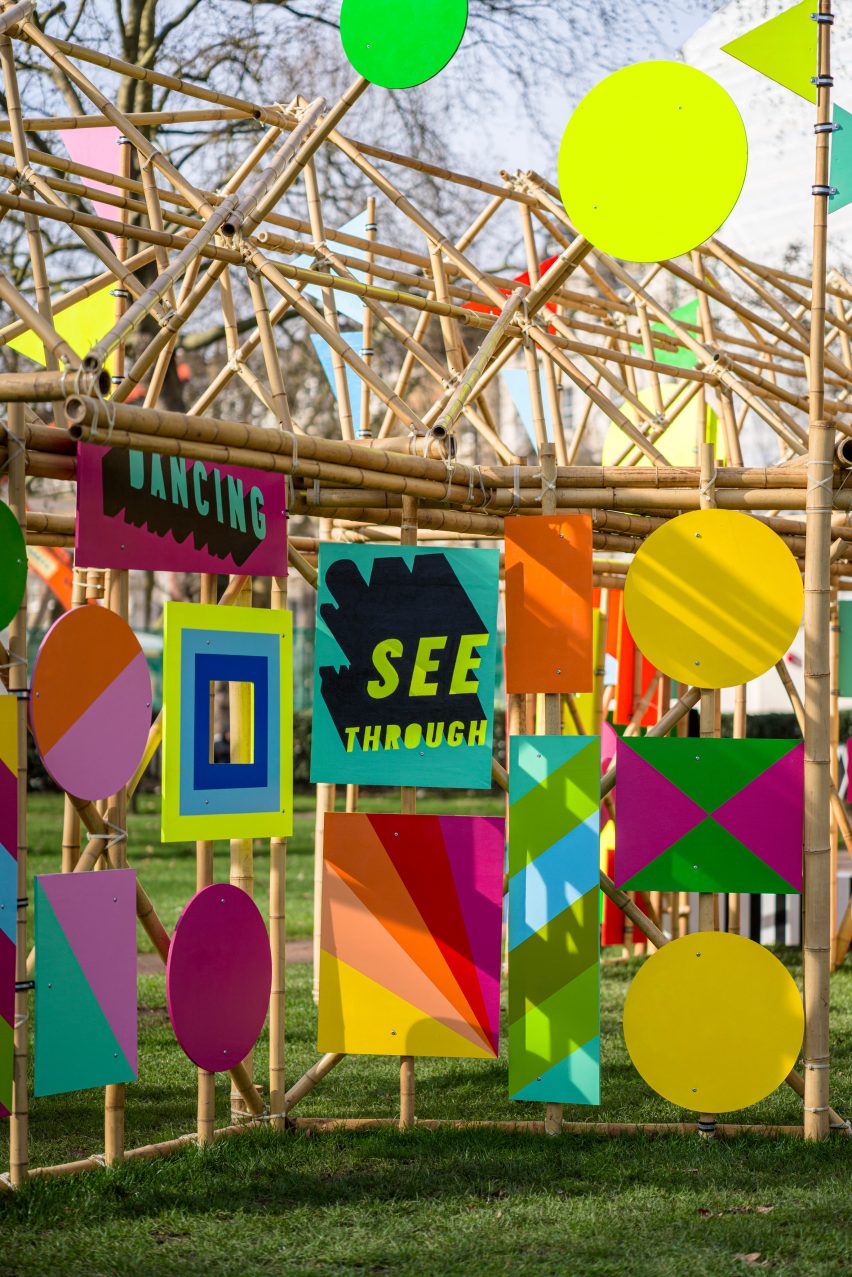
See Through is the first pavilion by Myerscough that is built from bamboo – a sustainable plant known for its naturally fast-growing and renewing properties, but also its strength and flexibility.
The bamboo canes are fastened together with cable ties and impermanent fixtures, ensuring both their stability in use and recyclability at the end of their life.
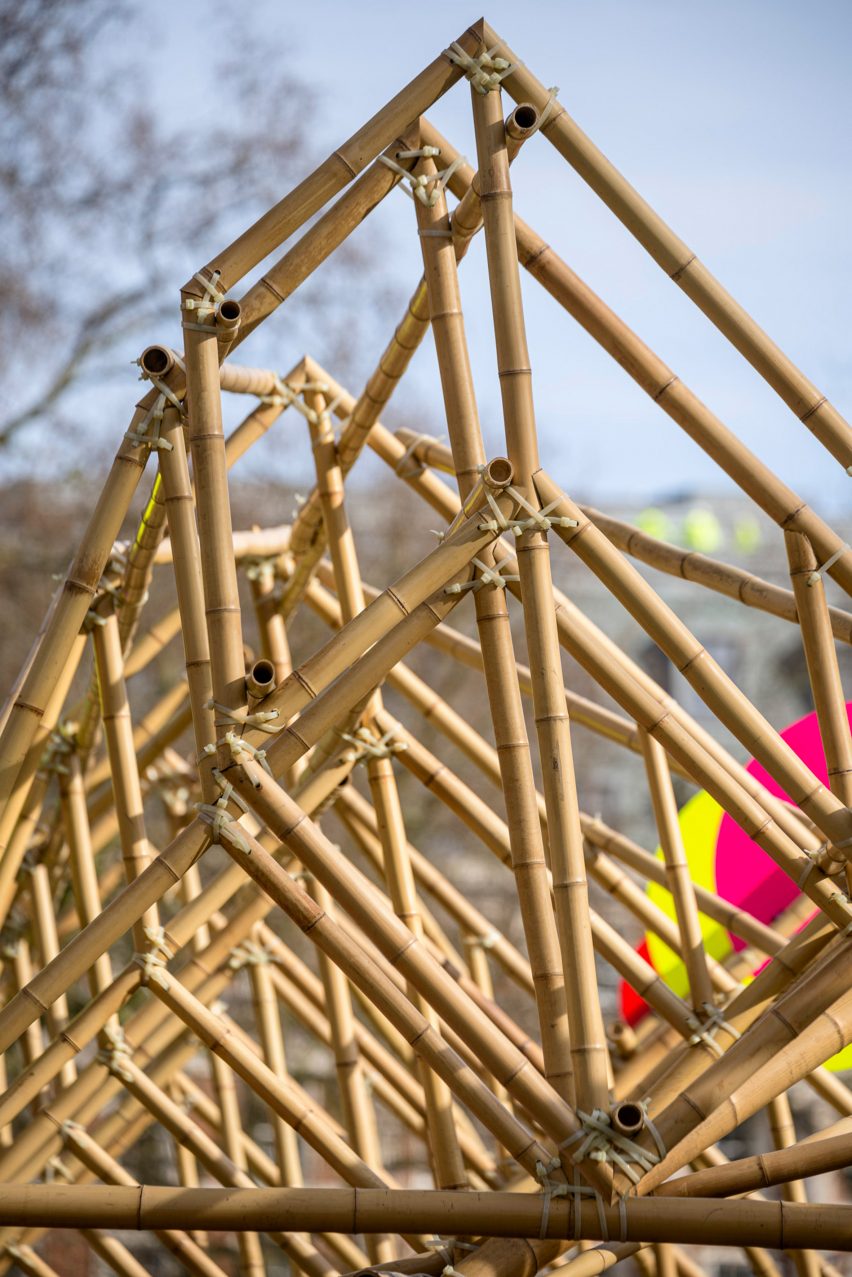
The phrases on the graphic panels that decorate the pavilion are drawn from Myerscough's notebook, within which she has written various words and sentences over the past year.
"I was listening and watching a lot of news and screen heads talking continually at me over the last year and I felt an urge to write down phrases and words that I heard, plus some I was thinking and observing myself," Myerscough explained.
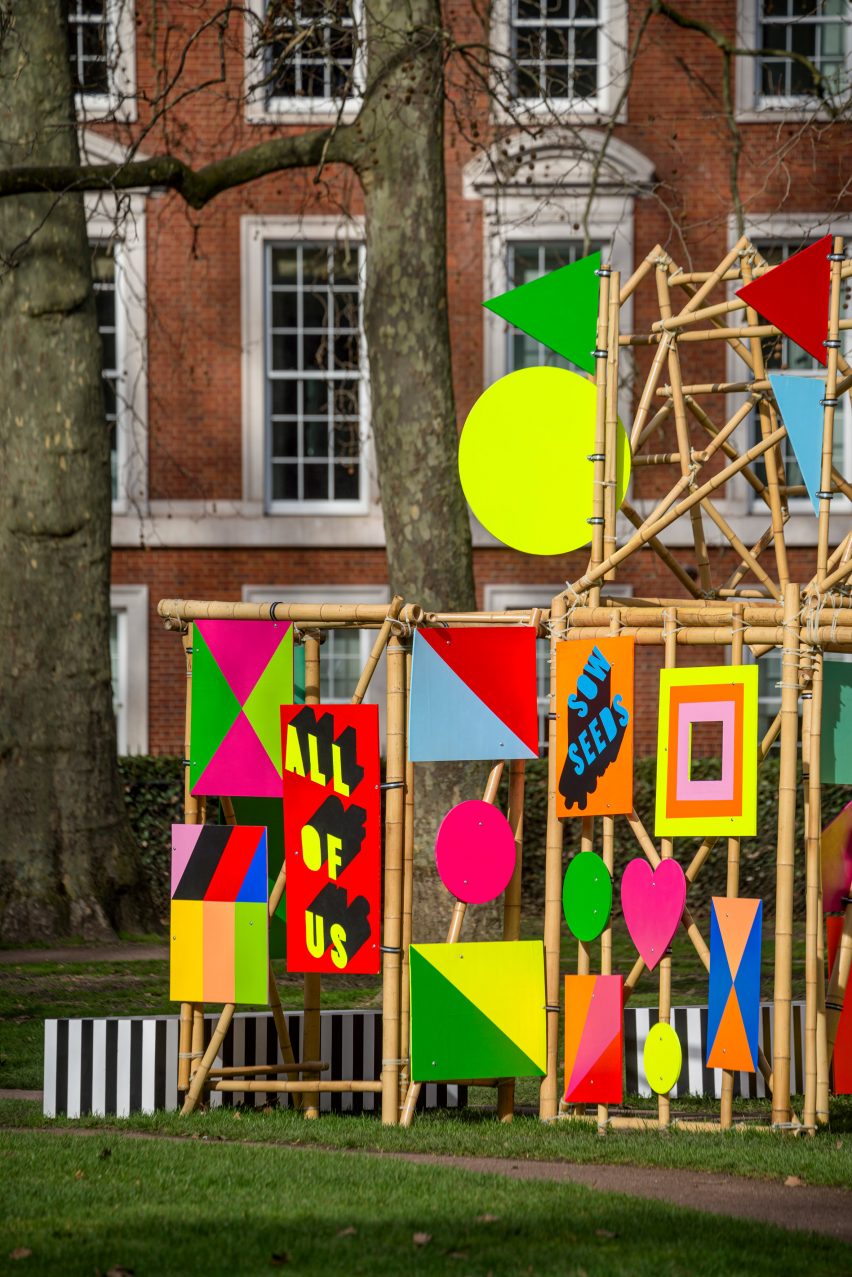
"Collecting words and recording thoughts and moods in different forms throughout this pandemic year has taken on a stronger meaning in my work," she continued.
"Everything feels heightened and I feel a need to express my thoughts and experiences as they are not individual thoughts and experiences; they are collective, as this is the first time in my lifetime and many others that we are all experiencing the same thing at the same time."
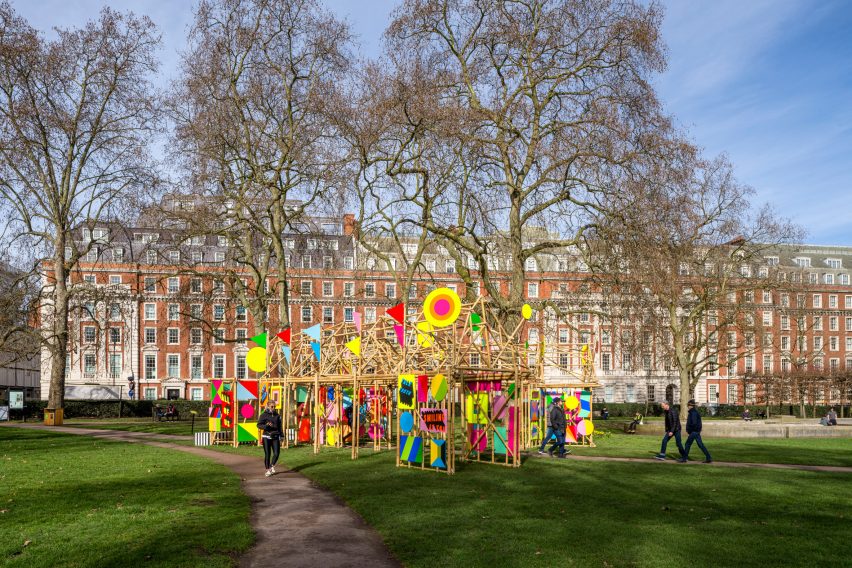
The decorative panels that envelop the pavilion are all made from ply offcuts from Myerscough's own studio and will be reused by the designer in her future work.
See Through is not the first installation completed by Myerscough during the coronavirus pandemic. In Paris, she created a colourful structure that encourages people to focus on the positive changes that have occurred as a result of Covid-19, and in Leeds, she designed a billboard to thank frontline workers.
Photography is by Gareth Gardner.